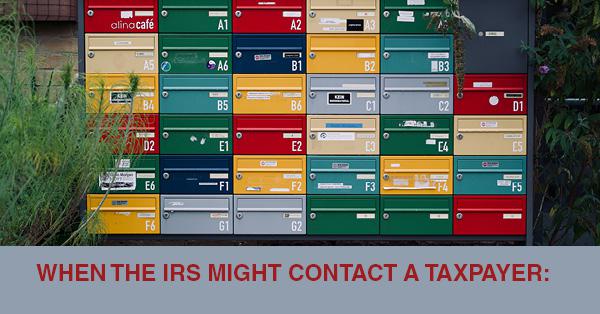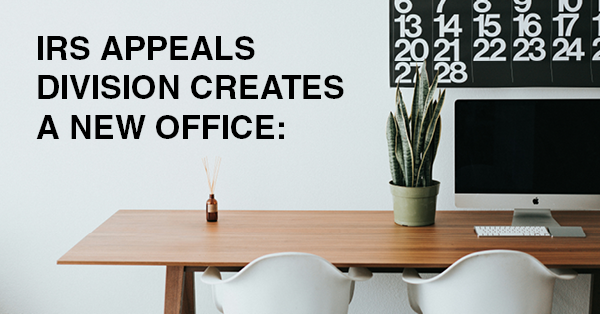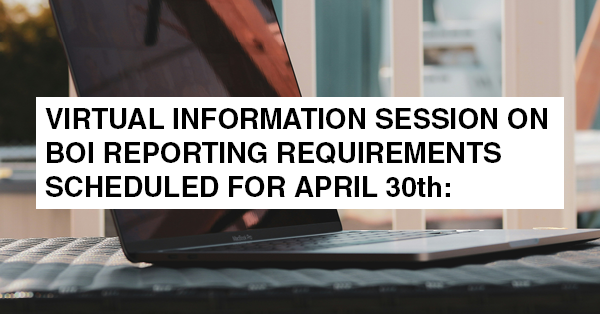WHEN THE IRS MIGHT CONTACT A TAXPAYER:

The Internal Revenue Service reaches out in multiple ways to educate taxpayers while ensuring it fairly enforces the nation's tax laws. There are important factors to keep in mind about when the IRS may initiate direct contact with a taxpayer.
People encountering a tax issue, such as an unpaid bill or a question about their taxes, will typically receive multiple letters in the mail from the IRS. People are encouraged to respond to these letters quickly, since interest and penalties can compound quickly.
Most IRS contacts with taxpayers are through regular mail delivered by the United States Postal Service. However, there are limited circumstances when the IRS will come to a home or business as part of a collection investigation, an audit or an ongoing criminal investigation.
These include when a taxpayer has an overdue tax bill, a delinquent (unfiled) tax return or has not made an employment tax deposit. An IRS employee may also view assets or tour a business as part of a collection investigation, an audit or an ongoing criminal investigation. Even then, taxpayers will generally first receive several notices from the IRS in the mail.
Scams take many shapes and forms, such as phone calls, letters and emails. Many IRS impersonators use threats to intimidate and bully people into paying a fabricated tax bill. They may even threaten to arrest or deport their would-be victim if they don’t comply.
How To Report Scams: Taxpayers can use these options to report phone, email and other impersonation scams:
- Report impersonation scams to the Treasury Inspector General for Tax Administration on the IRS Impersonation Scam Reporting webpage. Taxpayers can also call 800-366-4484;to report impersonation scams.
- Report phone scams to the Federal Trade Commission using the FTC Complaint Assistant. Add "IRS Telephone Scam" in the notes.
- Report an unsolicited email claiming to be from the IRS or an IRS-related system like the Electronic Federal Tax Payment System to the IRS at phishing@irs.gov.
- Protect your community by reporting fraud, scams, and bad business practices. Report fraud to Report Fraud FTC.
- For a comprehensive listing of recent tax scams, consumer alerts and how to report them, visit Tax Scams/Consumer Alerts.




